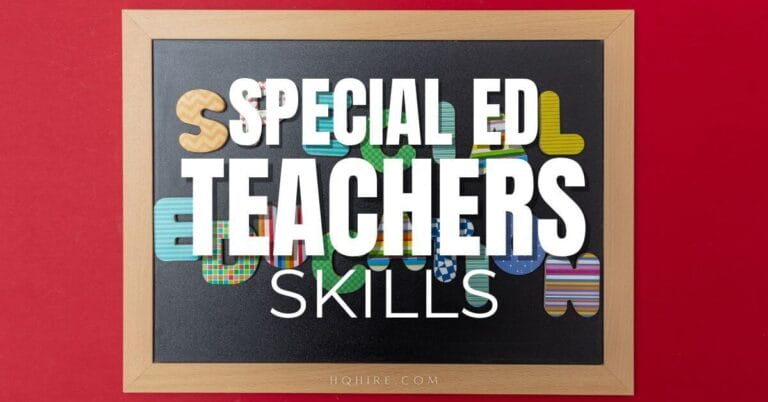In today’s fast-paced and technology-driven world, technical writing plays a crucial role in conveying complex information to various audiences.
Whether it’s user manuals, software documentation, or technical reports, technical writers serve as the bridge between subject matter experts and the end-users.
To excel in this field, technical writers must possess a a strong ability to convey message through written words. Interpersonal skills such as the ability to communicate, professional knowledge on the topic and the use of technology are essential for you to find success in this career.
In this article, we will explore these skills and their significance in the success of technical writers.
Interpersonal Skills for Technical Writers
Communication
Clear and effective communication is at the heart of technical writing. Technical writers should excel in:
- Conveying complex information: Simplifying technical concepts and making them accessible to the intended audience.
- Adaptation to different audiences: Tailoring the writing style and tone based on the needs and knowledge level of the readers.
- Collaboration with subject matter experts: Working closely with subject matter experts to understand and accurately document technical information.
Collaboration
Collaboration is key to producing high-quality technical documentation:
- Building relationships with subject matter experts: Developing a rapport and effectively working with experts to gather accurate and up-to-date information.
- Engaging with editors and reviewers: Incorporating feedback, suggestions, and edits to refine and improve the documentation.
- Teamwork: Collaborating with cross-functional teams, such as developers, designers, and project managers, to ensure comprehensive and accurate documentation.
Empathy
Understanding the needs and perspectives of the end-users is essential:
- Putting oneself in the users’ shoes: Anticipating users’ questions, concerns, and challenges to address them effectively in the documentation.
- User-centric approach: Focusing on creating user-friendly and intuitive content that meets the users’ requirements and expectations.
Active Listening
Active listening helps technical writers gather accurate information and capture the essence of the subject matter:
- Listening attentively to subject matter experts: Grasping the technical details and context to present them accurately in the documentation.
- Clarifying doubts and seeking further explanations: Proactively asking questions to ensure a comprehensive understanding of the subject matter.
Adaptability
Technical writers need to adapt to changing technologies, industries, and writing styles:
- Learning new technologies and tools: Staying updated with the latest authoring tools, content management systems, and graphic design software.
- Adapting to different industries: Understanding the specific terminology, standards, and practices of various industries.
- Flexibility in writing style: Adjusting the tone and style of writing to cater to different document types and target audiences.
Professional Skills for Technical Writers
Technical Proficiency
Technical writers must possess a solid understanding of technical subjects:
- Acquiring technical knowledge: Researching, studying, and learning about the subject matter to accurately convey information.
- Simplifying complex concepts: Breaking down intricate technical concepts into understandable terms for the target audience.
- Continual learning: Keeping up with technological advancements and industry trends to maintain up-to-date knowledge.
Writing Proficiency
Strong writing skills are essential for technical writers:
- Grammar and style: Demonstrating a command of grammar, punctuation, and style guidelines to produce clear and professional documentation.
- Clarity and coherence: Presenting information in a logical and organized manner to facilitate understanding.
- Conciseness: Conveying information efficiently without unnecessary jargon or verbosity.
Information Architecture
Structuring information effectively ensures ease of comprehension and accessibility:
- Organizing content: Employing logical frameworks, such as hierarchies and sections, to arrange information in a user-friendly manner.
- Using headings, subheadings, and bullet points: Highlighting key points and facilitating skimming and scanning of the document.
- Consistency and coherence: Maintaining a consistent structure and flow throughout the document to enhance readability and comprehension.
Research Skills
Technical writers need strong research abilities to gather accurate and up-to-date information:
- Source evaluation: Assessing the reliability and credibility of sources to ensure the accuracy of the documentation.
- Information gathering: Conducting thorough research through various channels, including interviews, documentation, and online resources.
- Verification of facts: Cross-referencing information to ensure its accuracy and credibility.
Project Management
Managing projects and meeting deadlines are essential skills for technical writers:
- Planning and organizing: Creating project timelines, setting priorities, and managing resources effectively.
- Time management: Balancing multiple projects and tasks to meet deadlines and deliver high-quality documentation.
- Collaboration with stakeholders: Communicating project requirements, milestones, and updates to stakeholders involved in the documentation process.
Tools and Technologies
Technical writers should be familiar with various tools and technologies that enhance their productivity and the quality of their work:
- Authoring tools: Proficiency in tools like Microsoft Word, Adobe FrameMaker, and MadCap Flare for creating and formatting technical documentation.
- Content management systems (CMS): Knowledge of CMS platforms like WordPress and Drupal to manage, publish, and update documentation efficiently.
- Graphic design software: Basic skills in software like Adobe Photoshop and Illustrator to create visually appealing diagrams, illustrations, and infographics.
What Does It Mean To Become Technical Writer
Technical writing requires a unique combination of interpersonal, professional skills and technology.
- Interpersonal skills like communication, collaboration, empathy, active listening, and adaptability enable technical writers to effectively gather information, understand the needs of the audience, and produce user-friendly documentation.
- Professional skills such as technical proficiency, writing proficiency, information architecture, research, and project management are crucial for creating accurate, clear, and well-organized technical documentation.
- As the field of technology continues to evolve, technical writers must remain adaptable and continually update their skills. Staying abreast of new tools, technologies, and industry trends will ensure that technical writers can meet the ever-changing demands of the profession.
By mastering these skills and embracing lifelong learning, technical writers can excel in their careers, contribute to the success of organizations, and effectively bridge the gap between complex technical information and end-users.
Job Description Example
Technical Writer Job Description
We are seeking a skilled and detail-oriented Technical Writer to join our team. As a Technical Writer, you will be responsible for creating clear and concise documentation that effectively communicates complex technical concepts to our users.
Your expertise in technical writing, strong research skills, and ability to collaborate with subject matter experts will contribute to the development of user manuals, guides, and other technical materials.
If you have a passion for writing, a keen eye for detail, and the ability to transform complex information into user-friendly content, we invite you to apply and be part of our dynamic team.
Responsibilities
- Create and update technical documentation, including user manuals, installation guides, release notes, and online help systems.
- Collaborate with subject matter experts to gather information and ensure accuracy and completeness of technical content.
- Translate complex technical concepts into clear and concise language that is accessible to users with varying levels of technical expertise.
- Organize and structure information effectively to improve usability and user experience.
- Conduct research to gather relevant information and validate technical details.
- Edit and proofread documentation for clarity, consistency, and adherence to style guidelines.
- Develop templates and style guides to maintain consistency across various technical documents.
- Collaborate with cross-functional teams, including product managers and software developers, to understand product features and functionalities.
- Keep up-to-date with industry trends and best practices in technical writing and incorporate them into documentation.
- Continuously improve documentation processes and standards to enhance the overall quality and efficiency of technical content.
Key Requirements
- Bachelor’s degree in Technical Writing, English, Communications, or a related field.
- Proven experience as a Technical Writer, preferably in the software or technology industry.
- Strong writing and editing skills, with the ability to convey complex technical information in a clear and concise manner.
- Proficiency in using authoring tools and software, such as MadCap Flare, Adobe FrameMaker, or similar applications.
- Familiarity with content management systems (CMS) and version control systems.
- Excellent research and analytical skills to gather and validate technical information.
- Detail-oriented with a focus on accuracy, grammar, and consistency in documentation.
- Ability to collaborate effectively with subject matter experts and cross-functional teams.
- Strong organizational skills to manage multiple documentation projects and meet deadlines.
- Familiarity with agile development methodologies and the ability to work in a fast-paced, collaborative environment.
We’ve one question…
Did we miss out on any critical skills needed?
Let us know in the comments below!
As a writer, you are using the power of written words to communicate effectively with your readers and audience. If you are looking for more related careers to this, visit our list of careers next.
Let’s take a look at all other types of career with their career education requirement and mode of work.
Read Also:
- 20 Online Meeting Etiquette in The Workplace (Remote Work)
- How to Host Effective Online Meeting (Beginner’s Guide)
- Online Meetings in the Workplace (Complete Guide)
- +15 Best Webinar Software for Business and Workplace (Live & Automated)
- Best Practices For Confirming a Meeting
Join over 11,000+ achievers who are committed to achieving their career goals!






